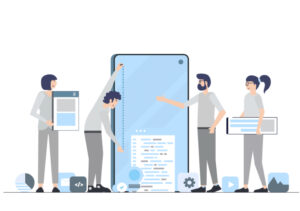The Importance of Triage Medical Assistants in Prioritizing Mental Health Emergencies
Mental health crises can occur unexpectedly and require immediate attention. In such situations, a triage medical assistant plays a critical role in prioritizing patient needs and ensuring swift, appropriate care. Whether in hospitals, clinics, or mental health facilities, these assistants are essential for managing emergencies efficiently and improving patient outcomes.
The Role of Triage Medical Assistants
A triage medical assistant is responsible for assessing patients as they arrive, determining the urgency of their condition, and directing them to the appropriate healthcare professional. In the context of mental health, this role becomes even more vital, as a timely intervention can significantly impact a patient’s recovery.
Mental health emergencies can include severe anxiety, suicidal thoughts, panic attacks, or sudden behavioral changes. Triage medical assistants are trained to identify these signs, assess the severity, and prioritize care. By doing so, they ensure that those who need immediate attention receive it without delay.
The Need for Prioritization in Mental Health Care
Unlike physical injuries, mental health conditions might not always present visible symptoms. This makes it harder to determine the severity of a patient’s condition at first glance. Triage medical assistants are trained to ask the right questions, observe patient behavior, and use clinical tools to assess risk factors. This helps them make informed decisions quickly, ensuring that patients receive the right care at the right time.
For example, a patient experiencing a panic attack may require immediate intervention, whereas someone dealing with general anxiety might be scheduled for a later appointment. Effective triage ensures that resources are used efficiently and that every patient is treated based on the urgency of their situation.
Supporting Roles of Virtual Assistants in Mental Health
The rise of digital health solutions has led to the increased use of virtual assistants to support mental health services. A mental health virtual assistant aids in scheduling appointments, managing patient follow-ups, and coordinating care between therapists and patients. This support helps streamline the care process, allowing healthcare providers to focus on treating patients rather than handling administrative tasks.
Mental health virtual assistants can also ensure that critical information, such as patient history and ongoing treatment plans, is available to triage medical assistants. This collaboration enables better care coordination and faster response times during emergencies.
Bridging Physical and Mental Health with Chiropractic Care
Mental health facilities are beginning to adopt a more holistic approach to patient care, integrating services that address both mental and physical health. For example, chiropractic care can alleviate stress, reduce muscle tension, and improve overall wellness. In such settings, a virtual chiropractic assistant manages administrative tasks, allowing chiropractors to focus on patient care.
By reducing stress and tension, chiropractic care can play a role in improving mental health. Virtual chiropractic assistants support this integrated care model by coordinating patient visits, managing records, and ensuring smooth communication between different healthcare providers.
Benefits of Triage Medical Assistants in Mental Health Facilities
The presence of triage medical assistants in mental health clinics provides several benefits:
- Timely Care: They help ensure that patients experiencing a mental health crisis receive immediate attention. By identifying the severity of the situation, they can guide patients to appropriate resources quickly.
- Efficient Resource Management: Triage assistants streamline the patient intake process, which improves the efficiency of the facility. This allows healthcare providers to manage their time and resources effectively.
- Improved Patient Outcomes: By accurately assessing a patient’s condition, triage assistants ensure that each individual receives care tailored to their needs. This can lead to better long-term outcomes and recovery rates.
- Enhanced Communication: Triage medical assistants act as a bridge between patients and healthcare providers, ensuring clear communication and proper documentation of patient needs.
Conclusion
Triage medical assistants are indispensable in mental health facilities, ensuring that patients experiencing emergencies receive fast and accurate assessments. By prioritizing care, managing patient flow, and coordinating with other healthcare professionals, they play a vital role in the overall functioning of the healthcare system.














Post Comment